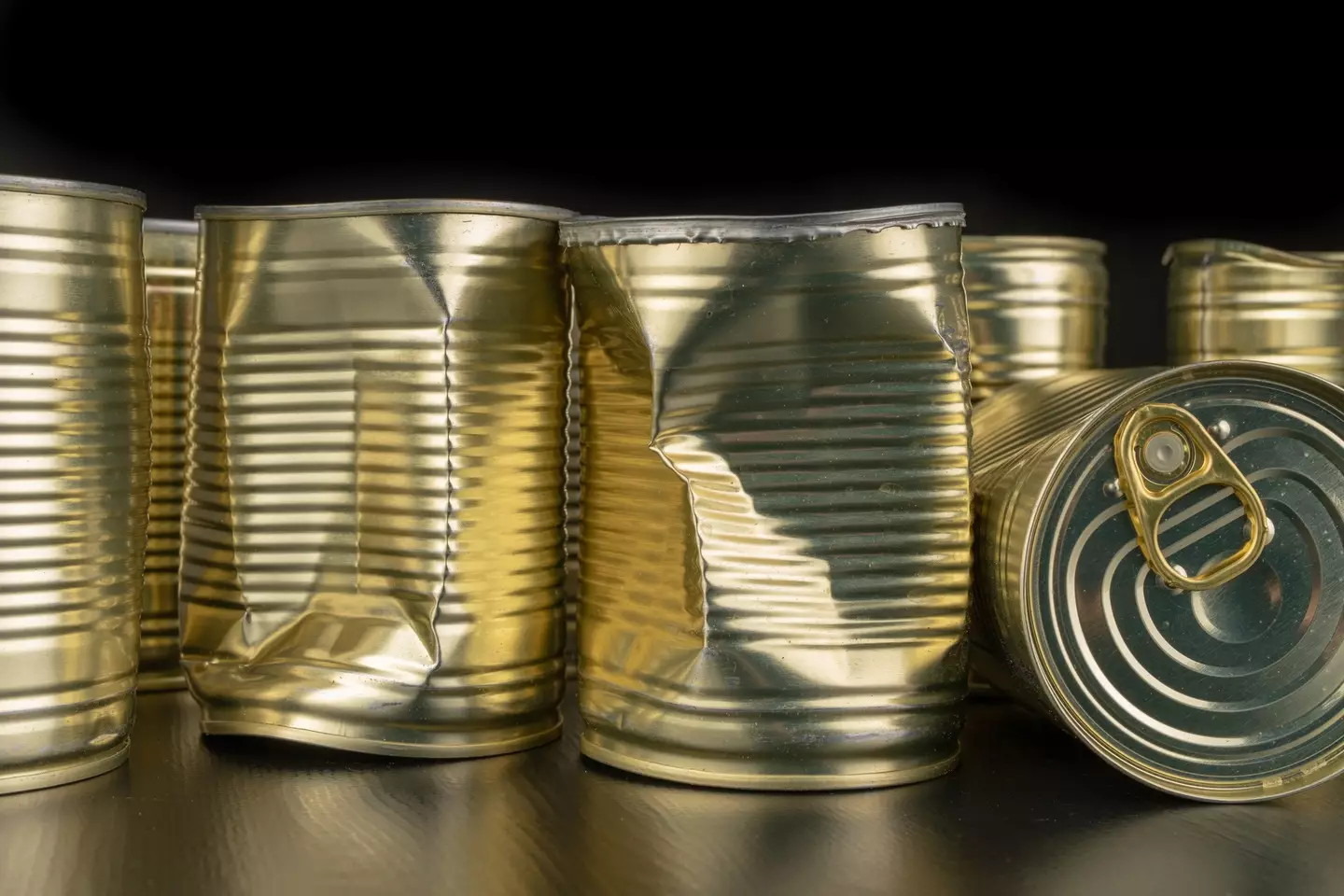
Dented packaging is par for the course at supermarkets. With so much stock, so many opportunities for things to fall over or crash into other things, and plenty of potential for human error along the supply chain, it’s just a fact of big commerce.
By and large, it isn’t cause for concern. If the packaging is still sealed, you’re generally good to go.
However, as urban legend would have it, dented cans are the exception.

Advert
It turns out there may be more to this than superstition, with health officials from the US Food and Drug Administration (FDA) saying you should: “NEVER USE food from cans that are leaking, bulging, or badly dented; cracked jars or jars with loose or bulging lids; canned food with a foul odour; or any container that spurts liquid when opening.”
According to the FDA, dented cans may contain Clostridium botulinum, which can cause botulism.
If you aren’t aware, botulism is seriously bad news. The bacteria’s toxins attack the nervous system, potentially causing paralysis. Most people respond well to treatment, especially if it’s caught quickly, but without treatment it can be fatal.
Around 5 to 10% of cases result in death.
“While extremely rare, a toxin produced by it is the worst danger in canned goods,” the FDA continued.
“DON'T TASTE SUCH FOOD! Even a minuscule amount of botulinum toxin can be deadly. Recommended storage times are as follows: two to five years for low-acid foods (such as meat, poultry, fish, and vegetables; 12-18 months for high acid foods (such as juices, fruit, pickles, tomato soup, and sauerkraut).”
The UK government’s advice around this is similar, although it caveats the warning by saying only severe denting is cause for concern.
“Food should remain fit to eat if a can is dented, providing the denting of the can is shallow and there are no other obvious signs that the can is damaged,” it said.
“However, if the denting is deep, the can may have a hidden split, hole or break in the seal.

“This could result in a can that is no longer a reliable container. If this is the case, the food inside should not be eaten. If the denting has caused the can to rust, the food inside should not be consumed either.”
It added that a ‘visibly bulging can’ may indicate the presence of ‘unsafe’ microorganisms producing gas.
“If consumers have purchased cans which are visibly bulging, they should return them to the retailer,” it said.
